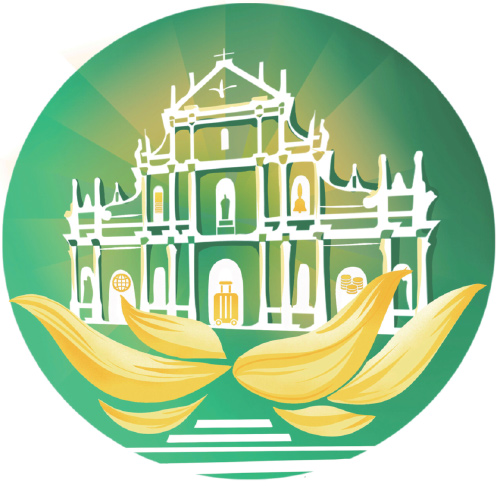More than just the gambling city


Since its return to the motherland in 1999, Macao has achieved smooth development under the special administrative region government. Public security, a major concern 20 years ago, has improved greatly. The per capita GDP stands at $80,000, thanks to the robust service sector as a result of ending the gambling monopoly. In addition, social conflicts have been eased and a strong social safety net has been built, including 15-year free compulsory education and high-level healthcare services.
In light of the fast changes since its return to China, revision of the laws was an urgent task and became a daunting challenge for the Macao Special Administrative Region Legislative Assembly. Over the past two decades, more than 200 laws have been revised. Among them, the enactment of Article 23 of the Basic Law has been of critical importance to ensure public security. The experience of Macao has proved that judicial power must rest with those loyal to the country and Macao, which is the prerequisite for maintaining the long-term peace and prosperity of the SAR.
With a land area of about 33 square kilometers and a population of only 630,000, Macao boasts a dozen institutes of higher learning. The University of Macau, Macau University of Science and Technology, City University of Macau and Macau Polytechnic Institute have altogether over 30,000 students, and these institutes enjoy fine reputations throughout China, and beyond. These institutes of higher learning, with distinctive characteristics, share some common features. First, they have high-caliber teachers with international background, offering multi-language curricula including English, Portuguese and Spanish.
Second, they have close connections with the mainland and receive firm support from the central government and neighboring Guangdong province. For example, the new campus of the University of Macau is located in Hengqin of Zhuhai, Guangdong province. But it is still under the jurisdiction of the Macao SAR. Key national laboratories have been established in the University of Macau and the Macau University of Science and Technology in cooperation with mainland institutions. The improved quality of education attracts many students from the mainland. Moreover, the Commissioner's Office of the Ministry of Foreign Affairs in Macao SAR regularly hold workshops on international laws or elective courses on foreign affairs at the universities.
Although known as the "gambling city", Macao is proud of its history and culture, which attract many tourists. Since Macao opened as a commercial port 500 years ago, an abundance of cultural legacies combining oriental and occidental features have been preserved. The Historic Center of Macao was inscribed into the UNESCO World Heritage Sites list in 2005. The temples and churches dotted around the island record the island's rich immersion in both Eastern and Western cultures. In last two decades, high-rises have sprung up in Macao, injecting vitality into the small city. Every year, more than 30 million tourists come to Macao, and it is not an easy job to provide quality services to all of them and ensure their safety. The locals used to speak Cantonese dialect, but since its return, they gradually picked up Mandarin, or standard Chinese. Now, over 15 million mainland tourists come to Macao each year, making the mastery of Mandarin a must for the residents.
Macao has also achieved fruitful results in international exchanges over the past two decades. There are several things worth mentioning. First, it has played a positive role in improving the relationship and cooperation between China and Portugal in the last two decades. Portugal has placed its consulate general in Macao, and the SAR has stationed its economy and trade representative office in Portugal. The two former executive chiefs of the SAR have been invited to visit Portugal and Portuguese politicians coming to Macao for international meetings have met the SAR leaders. The SAR government deals with Portugal-related affairs according to the Basic Law, and it has inherited as a whole the cultural legacy left by the Portuguese administration, with civil servants having the rights to decide whether to stay or leave. It is fair to say both China and Portugal view Macao as a positive factor facilitating their bilateral cooperation.
Second is the establishment of the Forum for Economic and Trade Cooperation between China and Portuguese-speaking Countries, a platform created in 2003 with its permanent secretariat based in Macao. The forum is conducive to the cooperation among these countries and also serves as a platform for the Macao SAR to give play to its own advantages and take part in the cooperation. With the building of the Guangdong-Hong Kong-Macao Greater Bay Area, the forum is expected to play a bigger role. Over the past more than 10 years, five ministerial-level meetings have been held in Macao, which have expedited the development of its convention and exhibition industry.
Third is the Global Tourism Economy Forum. The annual forum, started in 2012, is playing an increasingly bigger role in promoting exchanges and discussions in the global tourism industry. It is in line with the central government's policy of building Macao into a global tourism hub and also serves as a platform for the world, especially the Asia-Pacific region, to promote tourism cooperation.
Since its return, Macao has been walking on a road of prosperity and growth under the "one country, two systems" principle with support from the central government and compatriots in the mainland. Despite the challenges lying ahead, Macao is destined to embrace a brighter future.
The author is former commissioner of the Ministry of Foreign Affairs in Macao SAR.
The author contributed this article to China Watch exclusively. The views expressed do not necessarily reflect those of China Watch.
All rights reserved. Copying or sharing of any content for other than personal use is prohibited without prior written permission.


































